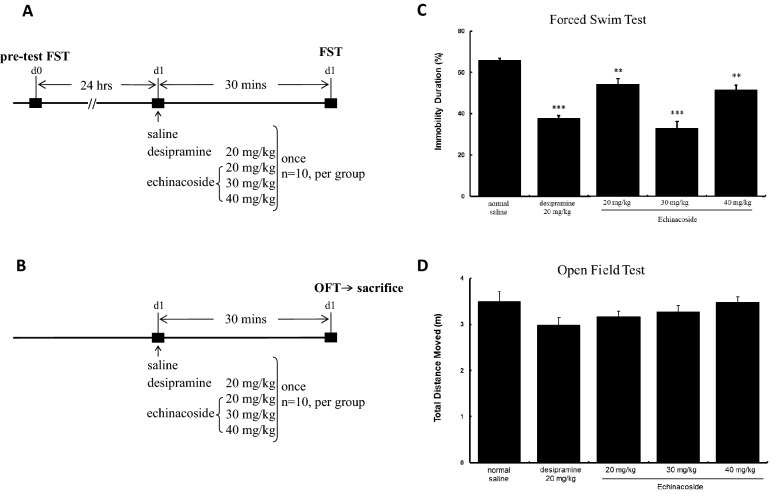Fig. 1.
Experimental mice treated with saline, desipramine (20 mg/kg, a tricyclic antidepressant as a positive control) and three different doses of echinacoside (20, 30 or 40 mg/kg) by intraperitoneally injection then detected behavior by forced swimming test (FST) (A) or open field test (OFT) (B). Mice were respectively administrated by normal saline, desipramine (20 mg/kg) and echinacoside (20, 30 or 40 mg/kg) 30 min before FST and 15-min pre-swimming were conducted at 24 h before the experiment (A). The percentage of immobility time significantly reduced in the groups of three different doses of echinacoside and desipramine-treated group (C) (ANOVA, F(4,45) = 32.454, p < 0.001, n = 10 per group). Mice were injected by normal saline, desipramine (20 mg/kg) and echinacoside (20, 30 or 40 mg/kg) 30 min before OFT (B). The total distance moved linked to the animals’ locomotor activity ability showed no difference between saline and all treating groups (D) (ANOVA, F(4,45) = 1.859, p> 0.05, n = 10 per group). (**p < 0.01, ***p < 0.001 compared with saline-treated group with Tukey post hoc analysis); values shown are mean ± SEM

